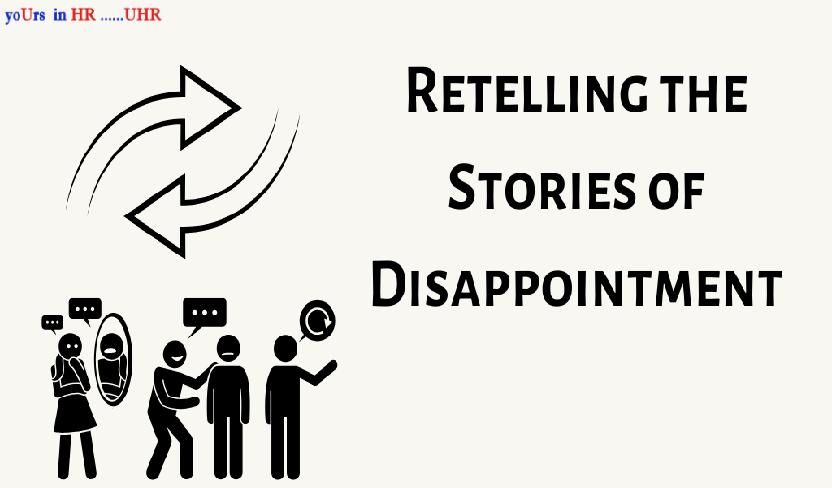
- Ankita had a look of utter disappointment on her face. Her proposal about a project had been rejected. She had worked hard for it, and although she did realise the few gaps in her work, she felt it was still good enough to be considered, with some minor tweaks.
- Anu had been giving interviews the entire week and none of the companies she interviewed for had called back. She was starting to think if she even had the bare minimum qualifications, given the lack of positive response to her interview.
- Adit had just been sidelined for a position, in the final round of his interview. Till the very last stage, he had been ahead but the last task gave the other candidate a major edge, which ultimately was their gain and Adit’s loss.
Do these scenarios evoke a stressful negative memory in you? We all must have faced disappointments like these or worse. A project we worked hard on didn’t turn out the way we wanted it to be. Expectations crashed. Or an interview we thought we had aced only to realise we missed out on the job by an inch. Or a professional networking relationship we had invested in, hoping the client will accept the pitch we provide utlimately, only to realise the client chose a different pitch.
Disappointments are a part of life. Professional and personal. How someone else- a person, a panel or a committee responds to our ideas, or how our ideas land in a situation is beyond our control.
What is in our control though is the story we tell ourselves. And how we use that story to progress and improve ourselves. In our earlier articles, we have talked about the power of storytelling in pitching, networking and ideating.
We can harness the power of a different kind of ‘storytelling’ in how we look at our disappointments as well, because at the end of the day, we are all telling ourselves stories about what we do.
Ankita told herself the story that her project proposal got rejected, the one which she worked so hard for, and that which she thought was enough to get accepted.
- She can retell the story in a different way: Although her project proposal was rejected, she has this draft of the proposal ready the next time she is asked to pitch in her ideas. All she will need to do is fill in the gaps which she has spotted already. And suddenly, she feels motivated and ready with something for the next time. She moves forward through this disappointment.
Anu told herself the story that none of the companies she interviewed for have called her back yet.
- She can retell the story in a different way: Although she hasn’t heard from any of the companies she had interviewed for as yet, she has gained so much experience in giving interviews this past week, and has her name in the databases of all these companies, and any day she may be contacted, if not right in the near future as the first preference, then as a silver medal candidate. This retelling helps her release some negativity from her mind, and also gain some confidence in her skills, which might help her to crack the next interview, who knows.
Adit told himself the story that he just lost out on the position in the last round, and another candidate edged past him.
- He can retell the story in a different way: Although he lost out on the job, he has developed a possible network of seniors and colleagues who have actually seen him progress through the rounds of the interview, the rounds where right until the end he had been the top performer. They have seen his strengths and weaknesses. He can actually approach one of them as possible mentors perhaps. Or the visibility he gained through the rounds of the interview itself opens doors to many possibilities. Possibilities of networking, future opportunities and mentorship. Again, he moves forward through this mindset, whether it’s seeking mentorship to improve upon himself, or finding opportunities elsewhere.
Note that in any of these examples, there is no reality denied. At the same time a sense of possibility is not denied as well. It is not toxic positivity- it is looking at things as they are from a different frame of mind. It is a story that helps one move past the disappointment. It is a story that helps one to move forward.
Disappointments are a part of life, but how we frame those disappointments in our minds decides the long-term outcomes of these disappointments. Disappointments can remain stories of disappointment. Or we can retell these stories and find ways to make the best of them. We can grow and move forward through them.


